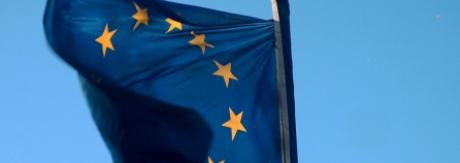
European Council to draw up guidelines for 7th EAP
By adopting new guidelines for the 7th EAP, the 27 member states define the EU’s environment policy for the next decade. The member states and the European Parliament insist on doing so. Environment Commissioner Janez Potocnik, who was reluctant about this idea at the start of his mandate, has gradually warmed to it. He did not really have much choice, particularly since the 6th EAP expires at the end of 2012. Copenhagen thus logically placed this issue at the top of its priorities, along with the debate on the future allocation for LIFE (the EU’s financial instrument supporting environmental and nature conservation projects throughout the EU), adoption of the Union’s common position for the RIO +20 global conference on sustainable development (June 2012) and follow-up to the Durban climate conference.
Green growth
The Danish EU Presidency believes in green growth and will make sure its action fits into this general framework, in particular by giving top priority to the Council’s adoption in June 2012 of guidelines (in the form of conclusions) spelling out clearly to the Commission what the 27 want to see included in the 7th EAP. The new programme should be a handbook for EU environment policy in line with the Europe 2020 strategy. Green growth will in fact most likely be one of the key subjects addressed at the informal meeting of environment ministers in Horsens (Jutland) on 18-19 April, followed the next day by an informal meeting of energy ministers.
In parallel, Copenhagen will launch debate in January on the proposal for financing of the new LIFE programme for 2014-2020, presented by the Commission on 12 December. The aim is for the ministers to hold their first airing of views at the March Council and to adopt a general approach at their June session. But this issue is directly tied to upcoming decisions on the multiannual financial framework. The Danish Presidency therefore plans to limit this general approach to the environment policy aspects alone, without discussing figures in this Council configuration.
International relations
The Danish Presidency will also have to prepare two major international meetings. The first is the United Nations sustainable development conference (RIO+20 – 20-22 June 2012). The subject will be on the March Council agenda but postponement of the conference from early to late June gives the 27 a bit more time to adopt their common position (Environment Council of 14 June). The ministers will also debate this subject at their meeting in Horsens.
The second international event is no less important. The 11th Conference of Parties to the United Nations Convention on Biological Diversity and Biosafety will be held from 8 to 19 October 2012 in Hyderabad (India). The sensitive issues include: ratification of the legally binding protocol aimed at setting up rules on access to genetic resources and sharing of the benefits of their use (or ABS protocol), implementation of the action plan to halt biodiversity loss and the roadmap for raising the financial resources needed for implementation of the CBD and aid to developing countries. These three texts were adopted in Nagoya in November 2010 and must be formally endorsed by the EU. The Commission has not yet presented any draft decisions in this respect.
Climate change
On the whole, the EU achieved its aims in Durban so the presidency should be able to deal with the climate issue relatively serenely, while remaining on its guard all the same since the subject is extremely sensitive as a result of the economic crisis. A working session will focus on climate in Horsens.
Apart from follow-up and analysis of the Durban conference results, the presidency would like at least to open debate on the draft regulation on surveillance of greenhouse gas emissions, presented on 23 November, and advance as far as possible on a number of documents announced by the Commission. These include: a communication and/or draft regulation on the accounting system for land use, land-use change and forestry (LULUCF) – the Commission should be able to finalise its proposal now that an agreement has been reached in Durban; a proposal on including maritime transport in emissions reduction efforts (given the problems at international level on including aviation, the Commission may look for an option other than pure and simple inclusion in the EU emissions trading scheme); and a legislative proposal on sustainability criteria for biofuels and their impact on land use.
Follow the developments within biorefining. hveiti regularly informs about our efforts to improve the environment.
Copyright © 2011 | Hveiti | Design Rabotnik




